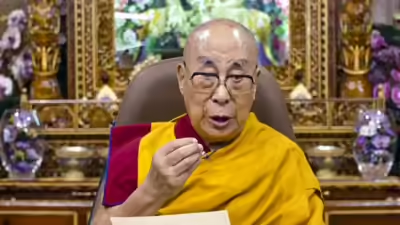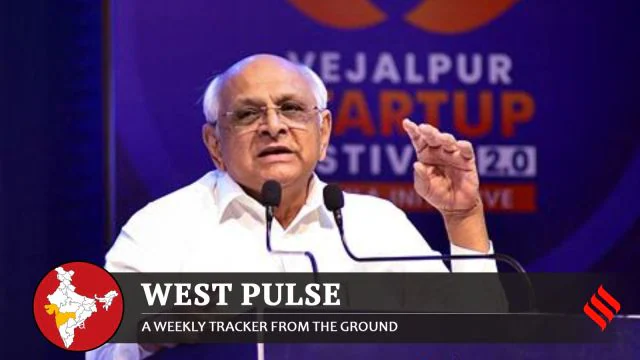In a sharp rejection of China’s long-standing assertions, the Tibetan president-in-exile has rejected Beijing’s jurisdiction over the choice of the next Dalai Lama. The move comes in the wake of India’s recent stand for the independence of Tibetan spiritual traditions, sharpening the international focus on the disputed question of succession.
Penpa Tsering, the democratically chosen leader of the Central Tibetan Administration (CTA), weighed in on the increasing alarm regarding China’s insistence on the use of the “Golden Urn” — a Qing dynasty-era practice — to select the 15th Dalai Lama. Tsering has clearly stated that the Tibetan people do not accept the validity of this process, labeling it as a means of political manipulation by the Chinese Communist Party.
The Golden Urn was never accepted by everybody even in Tibet, Tsering said, and has only been used selectively at the time of the Dalai Lama in the past. “The institution of the Dalai Lama is not political but religious,” he said, and the current Dalai Lama himself had repeatedly asserted that only he can choose his own successor, if one is to be chosen. The spiritual leader of Tibet has also hinted at the possibility that the line may die with him, defying the very concept of succession to be determined by an external state authority.
India’s Stand and Regional Implications
India’s recent statement rebuffing China’s claim over the next Dalai Lama has added a high diplomatic element to the crisis. As the hosting country of the existing Dalai Lama since his exile in 1959, India is at the center of the unfolding succession drama. In rejecting China’s position, India has not just reaffirmed allegiance to Tibetan autonomy but also indicated a hard line against China’s efforts to extend its influence via religious means.
The issue of Dalai Lama’s reincarnation is not strictly religious—it is a cultural, identity, and geopolitical sovereignty issue. For Tibetan communities around the globe, Beijing’s attempts to control the selection process are interpreted as a move to legitimize its Tibet occupation and undermine its spiritual heritage.
Global Tibetan Community on Alert
The exile Tibetan community, especially in India, Nepal, Europe, and North America, has been increasingly concerned that China could try to install its own Dalai Lama candidate, just as it had tried to install its own Panchen Lama in the 1990s. It was universally criticized and remains regarded by Tibetans as an act of religious interference.
Tsering highlighted that the international Tibetan community is one in opposing any such move. “Any reincarnation announced by the Chinese government will not be recognized by the Tibetan people,” he declared, underlining the concept that religious authority cannot be imposed by a government that represses religion.
The Future Role of the Dalai Lama
Now in his late 80s, the incumbent Dalai Lama still travels, teaches, and addresses global forums. Though he has suggested that the next reincarnation could be born outside of Chinese-occupied Tibet, he has not ruled out abandoning the tradition completely if it is no longer beneficial to the people.
With tensions brewing over this volatile topic, the world takes note. The struggle for the next Dalai Lama is not simply one of succession—it is a struggle for Tibetan identity, autonomy, and religious freedom.






